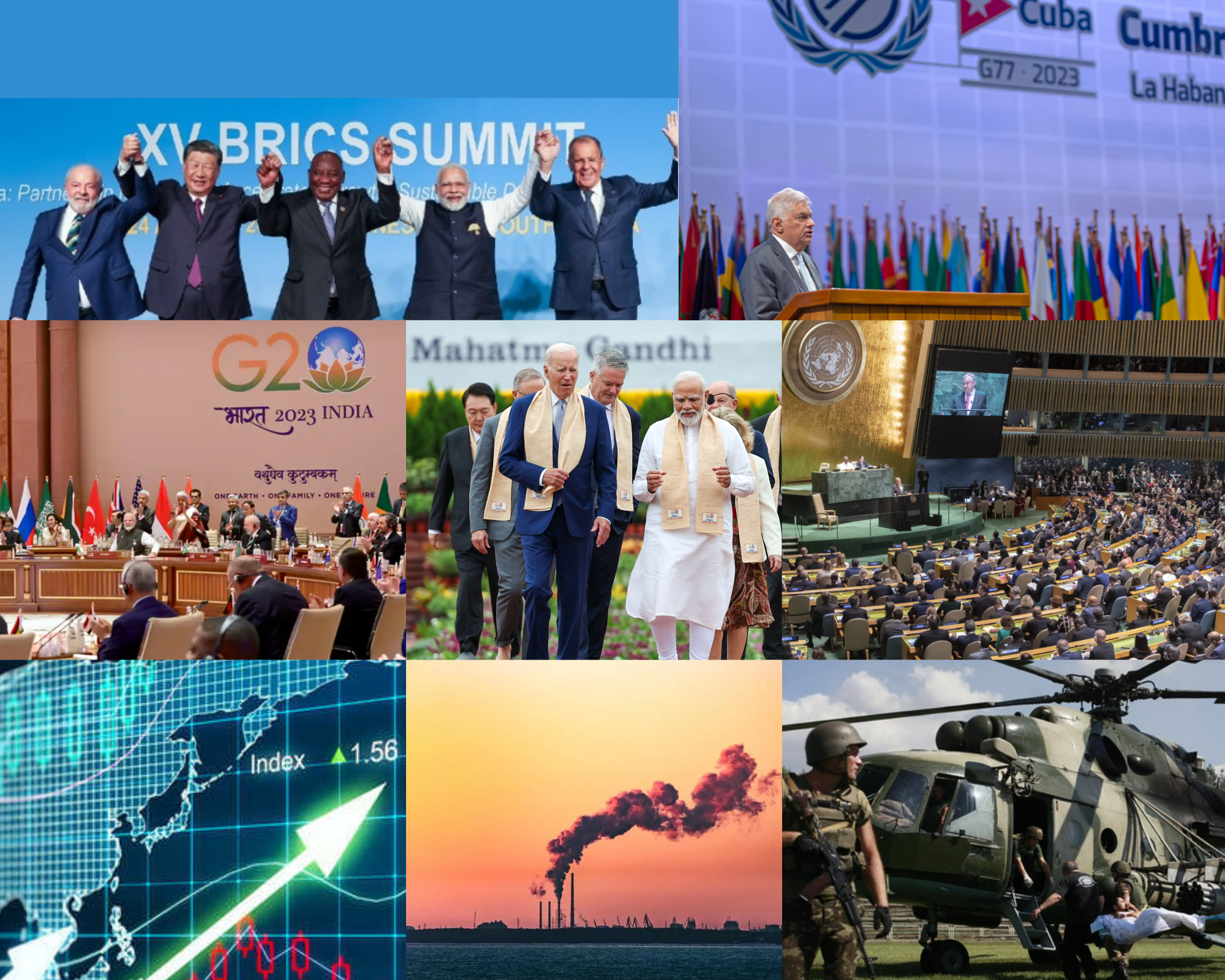September 19, 2023 Reading Time: < 1 minute

Reading Time: < 1 min read
Ravinatha Aryasinha
Executive Director at Lakshman Kadirgamar Institute of International Relations and Strategic Studies
Abstract of this paper:In the backdrop of the recently concluded BRICS, G20 and G77 & China Summits, and on the eve of the 78th UNGA Session, LKI’s Executive Director Ravinatha Aryasinha outlines seven key global dynamics that policymakers must both contend with, and where possible seek to take advantage of, as they grapple with crafting a sustainable foreign policy for Sri Lanka.
මෑතකදී අවසන් වූ BRICS, G20, G77 සහ චීන සමුළු පසුබිමේ සහ 78 වන UNGA සැසිවාරය ආසන්නයේ, LKI හි විධායක අධ්යක්ෂ රවිනාථ ආර්ය්යසිංහ, ශ්රී ලංකාව සඳහා තිරසාර විදේශ ප්රතිපත්තියක් සැකසීමට ප්රතිපත්ති සම්පාදකයින් අවධානය යොමු කළ යුතු ප්රධාන ගෝලීය ගතිකත්වයන් හතක් ගෙනහැර දක්වයි.
ඒවානම්; අස්ථාවර ගෝලීය ගතිකත්වය: බල දේශපාලනය, භූ-ආර්ථිකය සහ දේශගුණික විපර්යාස; ඉන්දියන් සාගර කලාපයේ බල එදිරිවාදිකම්; ඉන්දියාව ගෝලීය බලවතෙකු ලෙස නැගී සිටීම; කලාපීය අනන්යතාවය ගවේෂණය; බහුපාර්ශ්විකවාදයේ අර්බුද; මද්යස්ථ භූමිකාව නැවත අත්පත් කරගැනීම අධ්යනය; පරිණාමය වන රාජ්ය-නොවන පාර්ශවයන්ගේ භූමිකාව. මෙම ප්රවණතාවයන්ට මුහුණ දීමටත්, හැකි අවස්ථාවන්හි ඉන් වාසි ලබාගැනීමටත් ශ්රී ලංකා විදේශ ප්රතිපත්තිය පෙලගැස්වීමේ අවශ්යතාව මෙම අධ්යනයෙන් අවධාරණය කරයි.
சமீபத்தில் முடிவடைந்த BRICS, G20 மற்றும் G77 & சீனா உச்சிமாநாடுகளின் பின்னணியில், மற்றும் 78வது UNGA அமர்வுக்கு முன்னதாக, LKI இன் நிறைவேற்று இயக்குனர் ரவிநாத ஆரியசின்ஹா ஏழு முக்கிய உலகளாவிய இயக்கவியலைக் கோடிட்டுக் காட்டுகிறார், கொள்கை வகுப்பாளர்கள் இருவரும் போராட வேண்டும், மேலும் சாத்தியமான இடங்களில் சாதகமாக இருக்க வேண்டும். இலங்கைக்கான ஒரு நிலையான வெளியுறவுக் கொள்கையை வடிவமைப்பதில் அவர்கள் போராடுகிறார்கள்.
அவை; நிலையற்ற உலகளாவிய இயக்கவியல்: அதிகார அரசியல், புவி-பொருளாதாரம் மற்றும் காலநிலை மாற்றம்; இந்தியப் பெருங்கடல் பகுதியில் அதிகாரப் போட்டிகள்; உலக வல்லரசாக இந்தியாவின் எழுச்சி; பிராந்திய அடையாளத்திற்கான தேடல்; பன்முகத்தன்மையின் நெருக்கடிகள்; மத்திய தரையை மீட்டெடுப்பதற்கான தேடுதல்; அரசு அல்லாத நடிகர்களின் பரிணாம பங்கு உள்ளது.